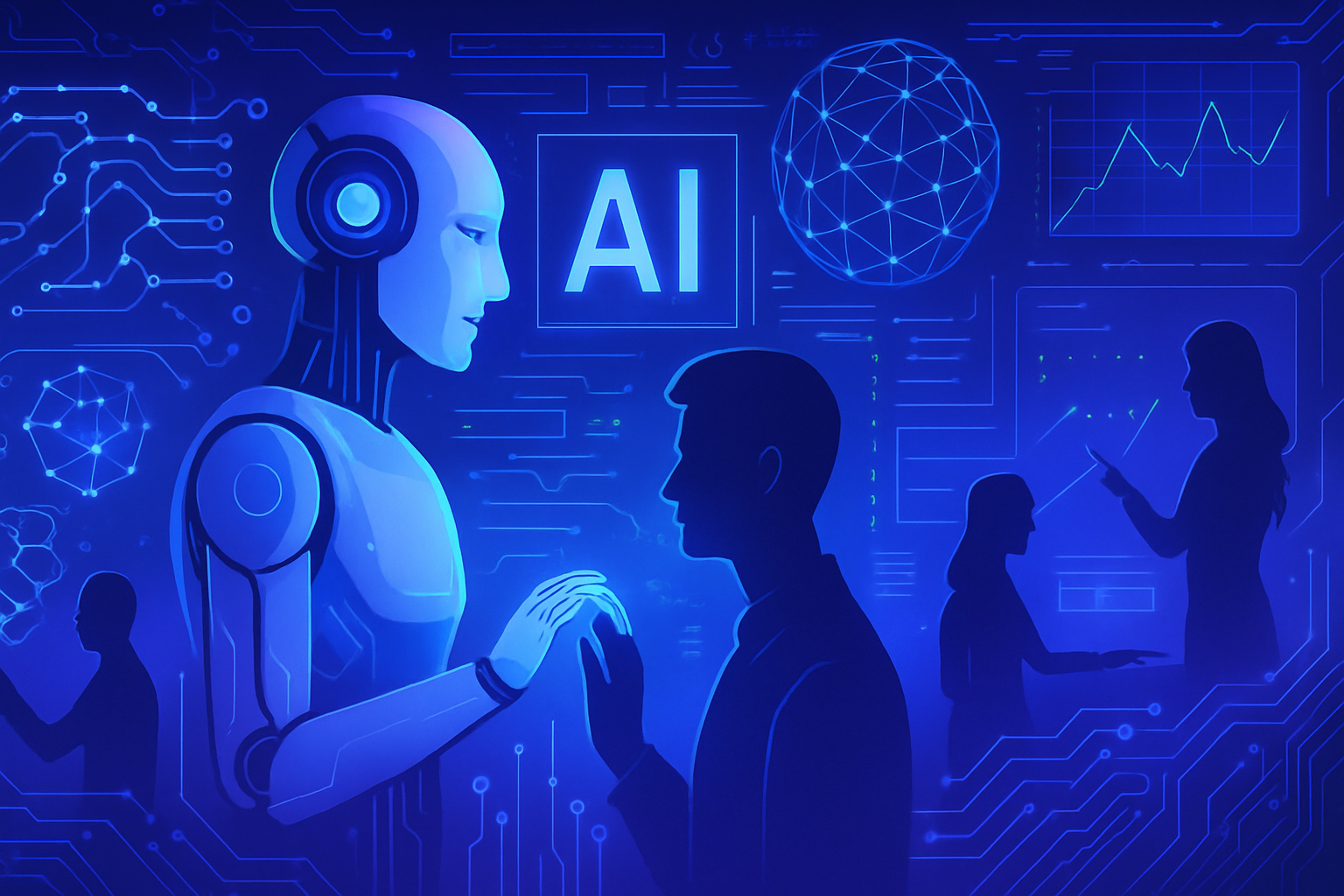The perception of AI shaped by the tech industry
The dominant narratives impose themselves forcefully, influencing our view of artificial intelligence. The industry shapes an attractive, often distorted image of AI’s potential. Far from being a mere tool, it becomes a key player in our daily lives. The socio-economic and ethical stakes associated with this technology deserve thorough examination.
The manipulation of information gives rise to misunderstandings about the actual capabilities of AI, creating an atmosphere of distrust. Deep ethical implications raise crucial questions about privacy and responsibility. A critical analysis of technological discourses is essential to demystify this phenomenon.
Social perception of AI
The way the tech industry shapes the perception of artificial intelligence (AI) deeply influences human interactions. Technological development is often accompanied by a desire for integration into daily life. Companies aspire to normalize a reassuring and beneficial vision of AI, promoting mass acceptance. Events such as CES 2025 testify to this trend, where omnipresent AI is presented as the catalyst for promising innovations, while minimizing its potential excesses.
Applications in the professional sector
The use of AI in the professional environment brings significant repercussions. Studies show that the adoption of these technologies could transform various sectors by 2025. Companies are moving towards solutions that optimize productivity, decision-making, and service personalization. This dynamic aims to improve efficiency and reduce costs, but also raises ethical questions about the role of humans in the face of automation.
Anticipation of future changes
Major technology players predict a new technological revolution within five years. This anticipation is based on significant advancements in the field of AI. According to industry experts, innovative applications could reshape the interactions between humans and machines, giving AI a central role in decision-making processes. The envisioned scenarios illustrate an evolution where AI does not merely execute tasks but positions itself as a strategic partner for businesses.
Personalization of digital experiences
AI enables an unprecedented personalization of user experiences. A recent innovation employs an algorithm capable of transforming the apparent age of human faces. This technology, powered by AI, opens new perspectives in terms of authenticity and user engagement, while raising ethical concerns about identity manipulation.
Revolution of human perception
Artificial intelligence systems are not limited to task optimization. They also revolutionize the perception of human capabilities, particularly through the model of hands. Advances in computer vision ensure improved recognition and interpretation of gestures. The presentation of these innovations, as seen at CES 2025, aims to transform our understanding of human interactions.
At the intersection of ethics and innovation
The dialogue around ethics in artificial intelligence remains essential. Industry players seek to balance innovation and responsibility. Discussions about the ethical limits of AI are becoming increasingly pressing as the consequences of its integration are felt across all aspects of society. The need for appropriate regulation becomes more evident, to ensure that this technology serves humanity without creating inequalities or discrimination.
Frequently asked questions
How does the tech industry shape our perception of AI?
The tech industry uses targeted narratives and marketing campaigns to present AI in a positive light, emphasizing its potential benefits while minimizing ethical concerns and associated risks.
What are the main objectives of companies in presenting AI in a specific way?
Companies primarily seek to generate public interest, promote the adoption of new technologies, and secure funding for their AI-related projects.
How do the media influence our understanding of AI?
The media play a key role in disseminating sensational or alarmist narratives, which can create either fascination or exaggerated fear around AI, thereby distorting the reality of this technology.
Why is ethics often underrepresented in discussions about AI?
Ethical considerations are often set aside to focus on the performance and capabilities of AI, which can lead to a one-dimensional view and a lack of dialogue about societal implications.
What are the risks associated with this biased perception of AI?
A biased perception can lead to unrealistic expectations, distort political and economic decision-making, and overlook security and privacy concerns.
How can companies communicate more effectively about AI?
They could adopt a transparent approach, explaining the mechanisms of AI, addressing potential dangers, and encouraging open dialogue with the public and industry experts.
Why is it important for the public to be well-informed about AI?
A well-informed public can pose critical questions, influence political decisions, and actively participate in conversations about the ethical and responsible use of AI.






